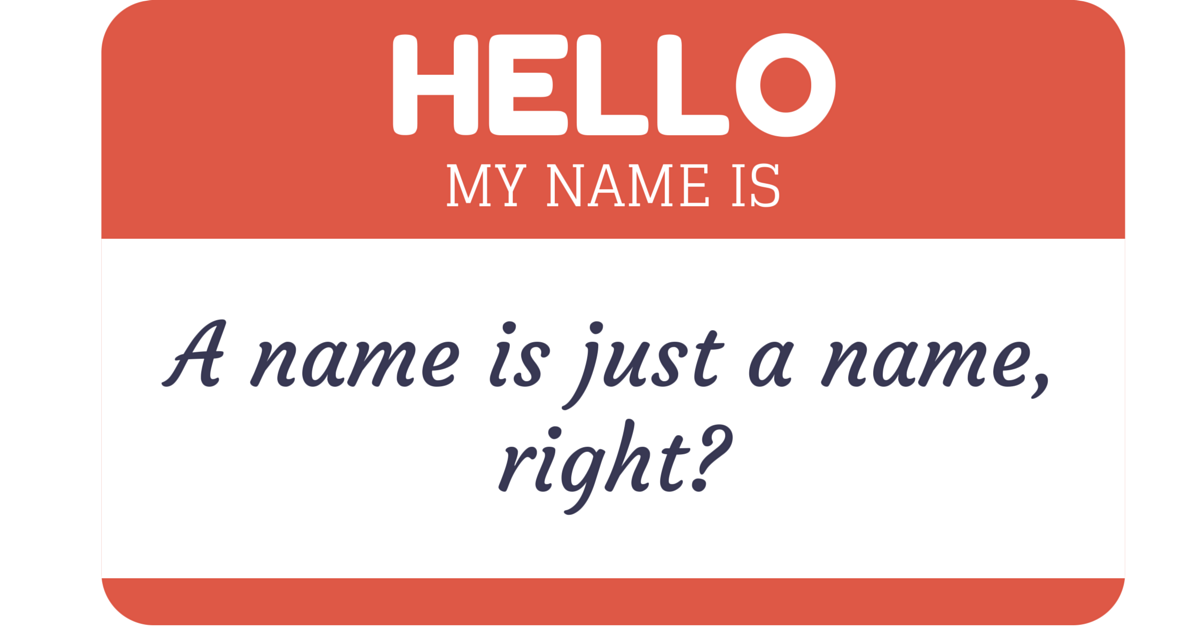Wrong! The importance of names is equally important as the development of the story. It's one of those key elements that sets the tone. Without a setting or a good name, the story will fall flat. When I say "a good name," I don't mean any nice sounding name. What I mean is the name not only has to fit the character, but it also has to fit the setting as well.
My third novel takes place in mid-18th century England. Classic and biblical names were used a lot at that time - John, Robert, Victor, Elizabeth, Mary, Anne - so you wouldn't meet someone named Harley, Dax, or Zander. For a historical piece, reading articles about nobility of that time or classic literature can help in naming a character. Of course if the story takes place in 2017, by all means name the character Cameron or Gigi, but make sure the name fits.
Every Name Has A Setting
In Hearts Against the Waves, my male protagonist* is named Victor. Victor is a twenty-something Irishman who has been living in England for most of his life. His father is a merchant who does quite a bit of traveling, hence Victor not baring a more "Irish" name. My female protagonist is still unnamed, but I do have a some ideas in mind. Evangelina, Rosamund, and Adeliese to name a few. She is the daughter of an English Earl, so naturally she should have a name that helps make her station in society clear - something classic but "fancy" at the same time. Both characters have backgrounds in England during a time where rank meant everything, thus their names should work accordingly. This is true for any story.
The names of the characters - namely the main ones - need to fit their setting, unless a character is a transplant from another place, or in some cases, another time.
Things to consider:
- What country does the story take place?
- In what time period?
- What is the character's position in society, if a historical book?
- What elements contribute to the character's name? (i.e. Victor's father travels to other countries and is exposed to various cultures, influencing his decision to name his son something of foreign origin.)
Wear The Name Like A Seal
We've all read a book where the protagonist has a wacky name that doesn't fit their personality in the slightest, and that can make it hard for some readers to get attached to the character. Names are an extension of who the character is as a person, and we as people make assumptions about others based on their name.
If I have a character that is a strong, independent, but pure hearted woman, I might name her Abby, meaning joy. It's sweet on the tongue but the spelling is less frilly than Abbie or Abbi. The same can be done for male roles. If I have a male lead that has a troubled past, and has trouble trusting others, I might consider Jasper, which means "master or keeper of the treasure."
The name should be sported proudly like a seal or crest of one's being. Our characters are as unique as the people who've created them, and their names should bare the same individuality.
Things to consider:
- Try different spellings of names to make it unique for the character in question. For example, Abby, Abbie, Abbi, Abbey, and Abigail can impact a character's tone in many ways.
- Remember the name is an extension of their personality, not just a way to identify them.
- Think of some people you know and what qualities they possess. Do any of your characters have the same qualities?
- When in doubt, baby naming books are the best. Most books and apps will have the various meanings and origins along with the name. My favorite app to use is BabyNames.
Remember to keep these two things in mind while writing: A) make the name fit the personality and setting, and B) make their name unique. By remembering these two rules, you'll be able to create characters that readers will remember long after they've finished your book.
God bless, lovelies!
----------------------------------------------------------------------


No comments:
Post a Comment